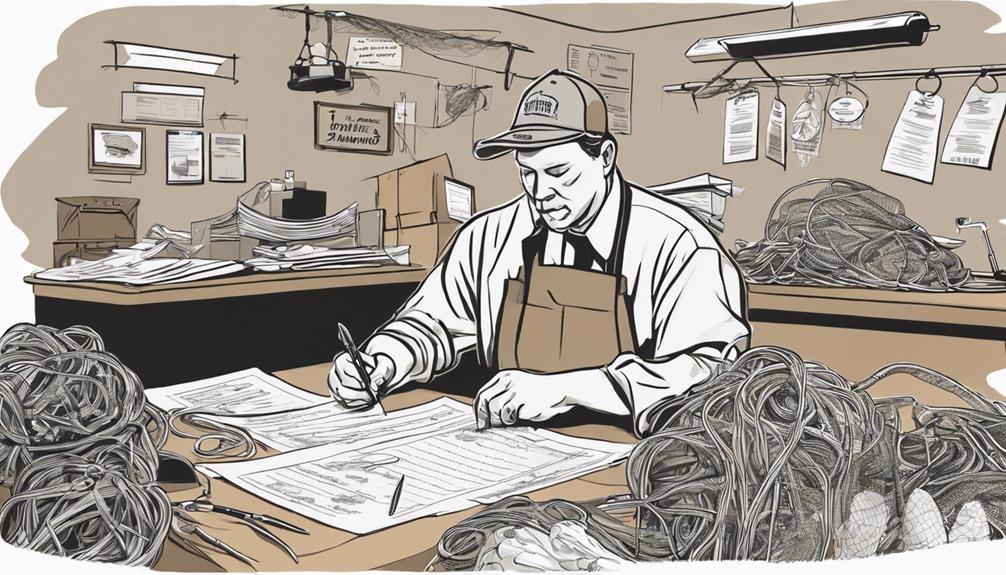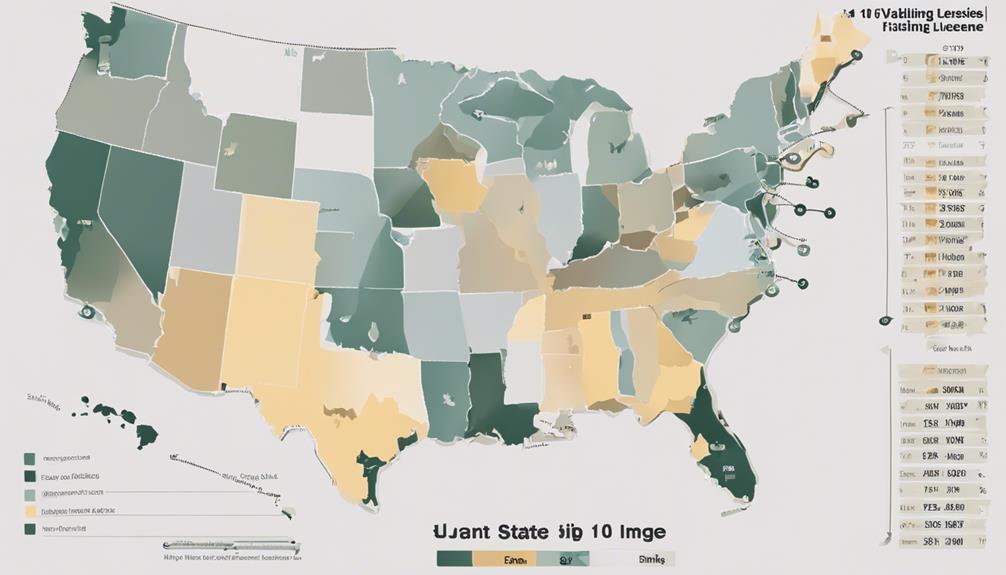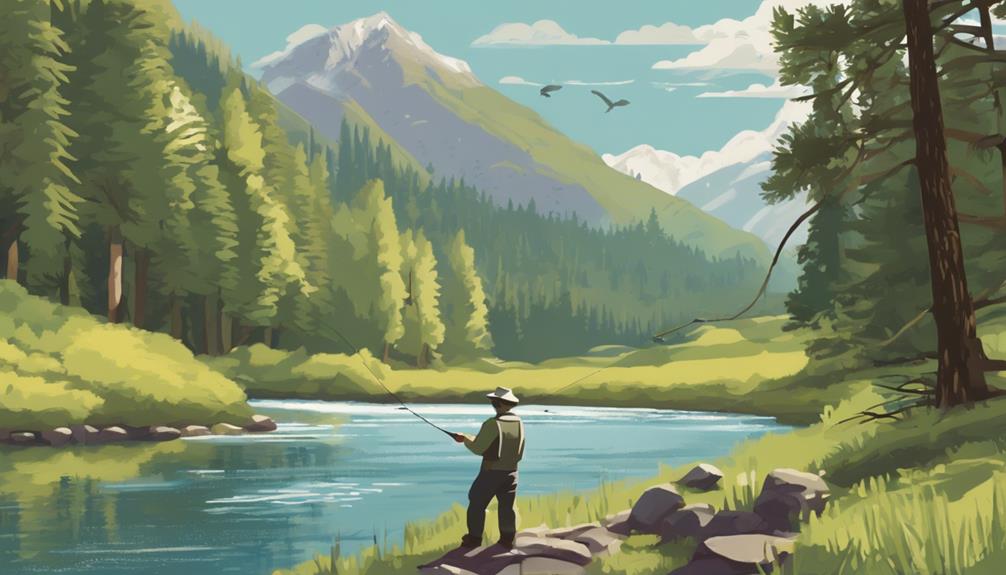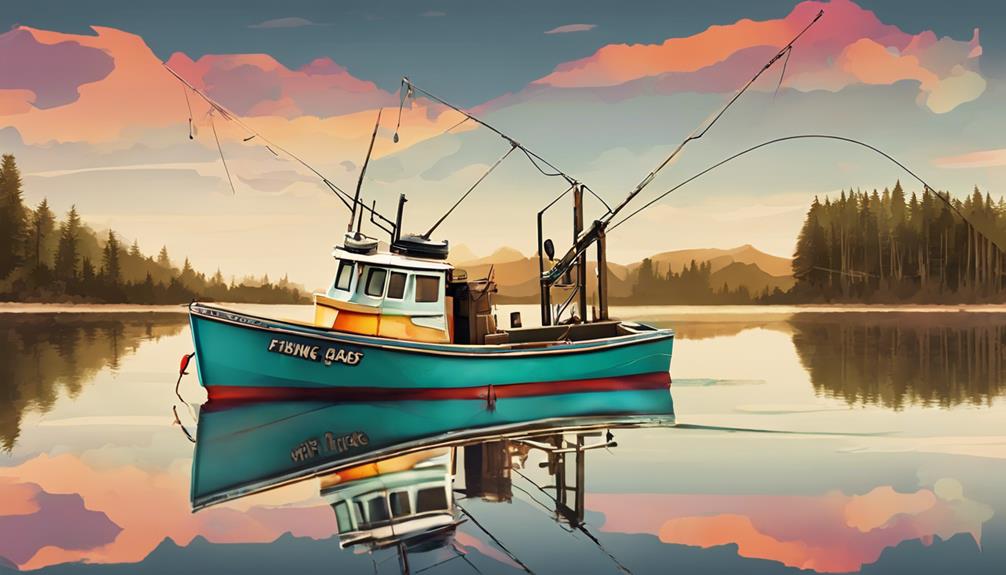As you set sail into the world of commercial fishing, navigating the waters of regulations and requirements can seem daunting. Understanding the process of obtaining your commercial fishing license is crucial for a successful venture.
From eligibility criteria to safety training and fee structures, each aspect plays a vital role in securing your license. However, there is one key element that often determines the success of your application that you cannot afford to overlook.
Eligibility Requirements
To qualify for a commercial fishing license, you must meet specific eligibility criteria set by the regulatory authorities. These criteria typically include factors such as your age, residency status, and sometimes even completion of certain training programs related to fishing practices. The application timeline for a commercial fishing license varies depending on the region and the issuing authority. It's essential to familiarize yourself with the specific timeline in your area to ensure you submit your application on time.
The eligibility criteria for a commercial fishing license usually require applicants to be of a certain age, often 18 years or older. Additionally, you may need to provide proof of residency in the area where you intend to fish commercially. Some regions may also mandate the completion of safety or training courses to ensure that license holders are well-equipped to handle the responsibilities that come with commercial fishing.
When it comes to the application timeline, it's crucial to plan ahead and gather all necessary documents well in advance. Missing the application deadline could result in delays in starting your commercial fishing activities. Therefore, staying organized and aware of the timeline is key to successfully obtaining your commercial fishing license.
Application Process
Commence the application process for your commercial fishing license by gathering all required documents promptly. Once you have everything you need, you can proceed with the application smoothly. Here are some key points to keep in mind during the application process:
- Fill out the application form accurately and completely to avoid delays or rejections.
- Be mindful of the licensing timeline to ensure you receive your commercial fishing license in time for your planned activities.
- Consider the license benefits that come with obtaining your commercial fishing license, such as access to specific fishing areas or the ability to sell your catch commercially.
- Stay informed about any additional requirements or steps you may need to complete as part of the application process to avoid any last-minute surprises.
Required Documentation
Ensure you have all necessary documents ready when applying for your commercial fishing license to expedite the process smoothly. To begin, be aware of the application deadlines set by the relevant authorities. Missing these deadlines could result in delays or even the need to reapply, so mark them on your calendar to stay on track.
When preparing your application, remember to have the licensing fees ready. These fees vary depending on the type of license you're applying for and the regulations in your area. Make sure to check the current fee schedule to avoid any surprises during the application process. Having the correct amount prepared will help streamline your application and prevent any unnecessary delays.
In addition to the application deadlines and licensing fees, ensure you have all required documentation in order. This may include proof of identity, proof of residency, vessel registration documents, and any other specific forms requested by the licensing agency. Double-check that all your documents are up-to-date and accurate before submitting your application to avoid any setbacks.
Fishing Gear Restrictions
When adhering to fishing gear restrictions, it's crucial to familiarize yourself with the specific regulations governing the types and quantities of gear allowed for commercial fishing activities. Ensuring compliance with these restrictions is vital to protect marine ecosystems and sustain fish populations.
Here are some essential points to consider:
- Gear specifications: Different types of fishing gear may be permitted or prohibited based on the area and species being targeted. Make sure to check the regulations regarding gear such as nets, traps, hooks, and lines to avoid any violations.
- Seasonal restrictions: Some fishing gear may only be allowed during specific seasons to prevent overfishing and protect spawning grounds. It's important to be aware of these seasonal restrictions and adjust your fishing practices accordingly.
- Quantity limitations: Regulations often dictate the maximum quantities of gear that can be used, such as the number of traps or nets. Exceeding these limits can result in fines or other penalties, so be sure to stay within the specified quantities.
- Gear modification rules: In some cases, modifications to fishing gear may be allowed or required to minimize bycatch or environmental impact. Familiarize yourself with any rules regarding gear modifications to ensure compliance with regulations.
Safety Training
To operate safely in commercial fishing, acquiring proper safety training is essential. Safety guidelines are put in place to ensure the well-being of everyone on board and to prevent accidents at sea. Understanding and following these guidelines can make all the difference in emergency situations.
One crucial aspect of safety training is familiarizing yourself with emergency procedures. In the unpredictable marine environment, knowing how to respond swiftly and effectively during emergencies can save lives. This includes knowing how to use life-saving equipment such as life jackets, life rafts, and flares. Regular drills and practice sessions can help you and your crew react confidently in case of emergencies.
Additionally, being aware of safety guidelines specific to commercial fishing operations is vital. This includes understanding how to properly handle equipment, manage heavy catches, and navigate inclement weather conditions. Proper training can help prevent accidents like slips, trips, and falls on deck, which are common in the fishing industry.
Environmental Regulations
Understanding the environmental regulations governing commercial fishing practices is crucial for maintaining sustainability and protecting marine ecosystems. As a commercial fisher, you play a significant role in preserving the delicate balance of our oceans. Here are some key points to consider:
- Conservation Efforts: Engage in conservation efforts such as implementing sustainable fishing practices to ensure the long-term health of fish populations and marine habitats.
- Sustainability Practices: Embrace sustainability practices by adhering to catch limits, using selective fishing gear, and avoiding overfishing to prevent depletion of marine resources.
- Impact Assessment: Conduct thorough impact assessments before starting new fishing activities to evaluate potential environmental consequences and mitigate any harmful effects on marine ecosystems.
- Resource Management: Practice responsible resource management by monitoring fish stocks, minimizing bycatch, and supporting initiatives that aim to protect endangered species.
Fee Structure
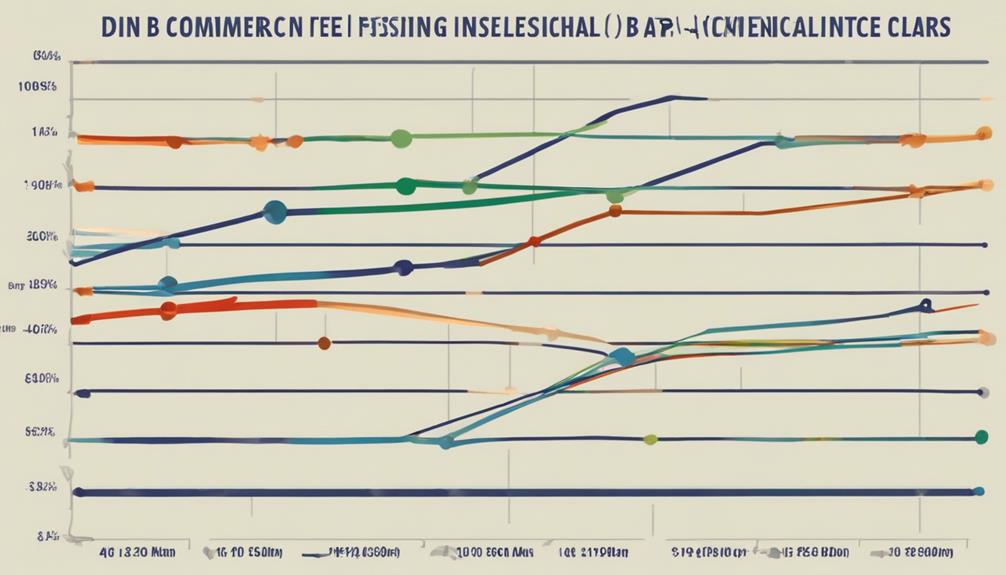
Consider the fee structure for obtaining your commercial fishing license. When it comes to payment options, most licensing authorities offer various methods to pay for your license fees. You can typically choose to pay online using a credit card, through electronic funds transfer, or by mailing a check or money order. Before making a payment, make sure to check with your local licensing agency to confirm the accepted payment methods.
In terms of cost comparison, the fees for commercial fishing licenses can vary depending on the type of fishing you plan to do, the location where you'll be fishing, and the duration of the license. Some licenses may be valid for a full year, while others may need to be renewed more frequently. It's essential to assess the cost of the license against the potential income you expect to generate from your commercial fishing activities.
Before making a decision, take the time to research and compare the fee structures of different licensing options available to you. By understanding the payment options and conducting a cost comparison, you can make an informed choice that best suits your commercial fishing needs.
Renewal Process
When renewing your commercial fishing license, remember to check the expiration date to ensure timely renewal. Ensuring you renew your license before it expires is crucial to avoid any disruptions in your fishing activities.
Here are some key points to consider during the renewal process:
- License expiration: Keep track of your license expiration date to initiate the renewal process in a timely manner. Failure to renew on time could result in penalties or the need to reapply for a new license.
- Renewal fees: Be aware of the renewal fees associated with your commercial fishing license. Make sure to have the necessary funds available to cover the fees when renewing your license.
- Required documentation: Prepare all the required documentation for the renewal process, such as identification documents, proof of previous license, and any additional forms specific to your location or type of fishing.
- Renewal methods: Familiarize yourself with the available methods for renewing your commercial fishing license. This can include online renewal options, in-person visits to licensing offices, or mailing in your renewal application.
Frequently Asked Questions
Can I Transfer My Commercial Fishing License to Another Individual or Business?
Yes, you can transfer your commercial fishing license to another individual or business. License ownership allows for transferability under certain conditions. The individual or business must meet eligibility requirements to receive the transferred license.
It's essential to follow the proper procedures and regulations when transferring ownership to ensure compliance with licensing regulations. Make sure to consult the appropriate authorities for guidance on the transfer process.
Are There Any Restrictions on the Types of Fish I Can Catch With a Commercial Fishing License?
When fishing with a commercial license, restrictions may apply to certain fish species. Regulations dictate catch limits and guidelines for specific types of fish. It's crucial to be aware of these rules to ensure compliance and sustainable fishing practices.
Familiarize yourself with the limitations on fish species you can catch to avoid penalties and protect the marine ecosystem. Stay informed and follow the regulations to maintain a thriving fishing industry.
How Often Are Commercial Fishing License Regulations Updated or Changed?
Regulatory impact and compliance requirements dictate how often commercial fishing license regulations change. Industry consultation influences these updates.
Stay informed as changes affect license validity and the types of fish you can catch. Be proactive to ensure you're following the current rules.
Are There Any Specific Locations or Zones Where Commercial Fishing Is Prohibited?
In some areas, fishing is prohibited to protect the environment and endangered species. These protected zones have specific fishing regulations and may restrict access to certain species.
It's essential to be aware of these prohibited zones and follow the rules to ensure sustainable fishing practices. Take note of any restricted areas and respect the regulations in place to help preserve marine ecosystems for future generations.
Can I Use a Commercial Fishing License for Recreational Purposes as Well?
You can't use a commercial fishing license for recreational purposes. The license is specifically for commercial fishing activities. There are restrictions on the use of the license, including not being able to transfer it for recreational use.
Make sure to adhere to all license regulations, including avoiding prohibited zones for fishing. If you want to fish recreationally, you'll need a separate recreational fishing license.
Conclusion
Now that you have learned about the eligibility requirements, application process, required documentation, fishing gear restrictions, safety training, environmental regulations, fee structure, and renewal process for obtaining your commercial fishing license, you're ready to take the next step in pursuing your fishing career.
Remember to stay informed and compliant with all regulations to ensure a successful and sustainable fishing business.
Good luck on your fishing endeavors!
